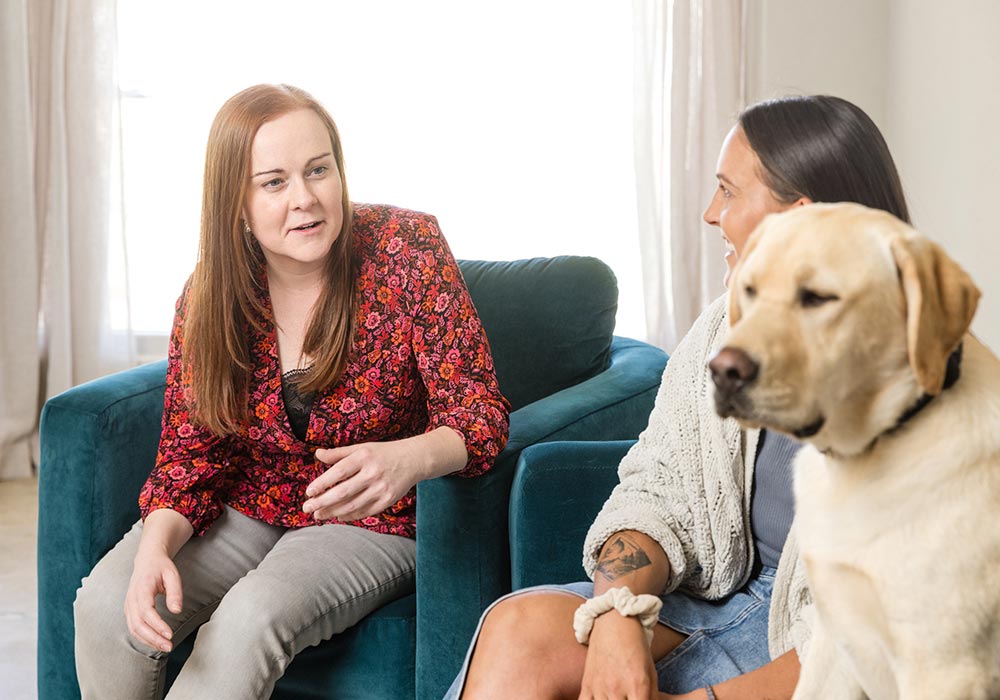Dog-assisted phobia therapy in Ballarat
Individuals can develop phobias due to maladaptive or negative thought patterns and distorted perceptions of threat. Essentially, we develop an unhelpful tendency to have exaggerated beliefs about danger and our inability to cope, leading to heightened fear responses to the phobic stimuli. For example, someone with arachnophobia (fear of spiders) may irrationally believe that all spiders are deadly. The effect of a phobia on individuals can range from heightened anxiety when you face your phobia all the way to extreme fear, panic or functional challenges (like being unable to leave your house because of your phobia).
Be sure to have a look at our other animal therapy services and treatment areas, including couples and parenting and career and life changes.


